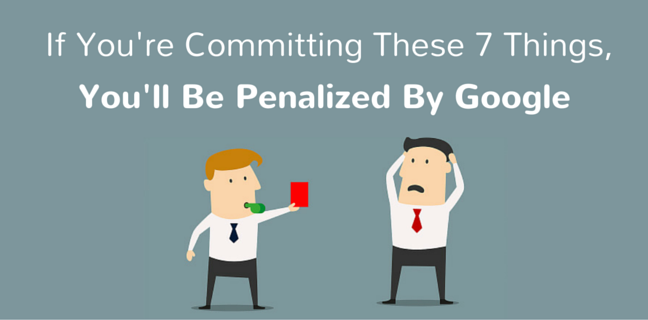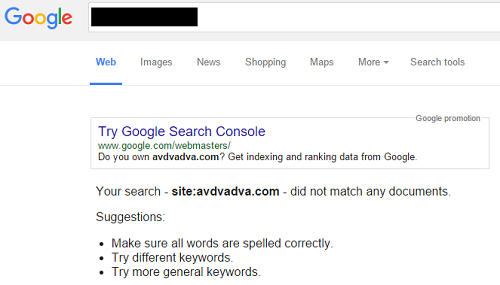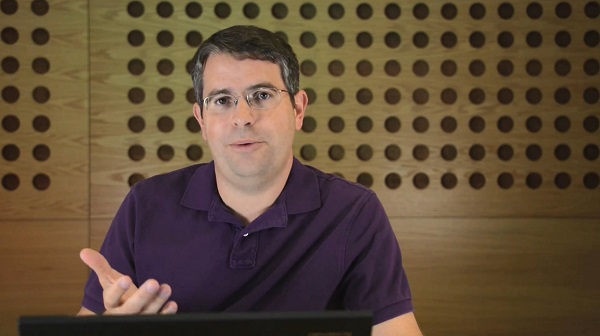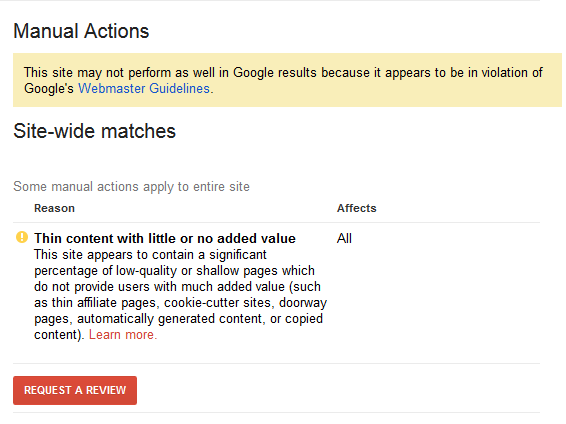Steph W. from SEOPressor


...help you check your website and tell you exactly how to rank higher?


77
score %
SEO Score

Found us from search engine?
We rank high, you can too.
SEOPressor helps you to optimize your on-page SEO for higher & improved search ranking.
By winniewong on July 15, 2015

Search engine optimization is something that most bloggers and online marketers are incredibly familiar with and it is the key to stable and reliable web traffic.
Now, if you do a little bit of research, you’ll find that there are thousands of people all over the web that claim to know the best SEO methods.
The problem with many of these methods are that they are considered “black hat.”
There is the right way to do SEO and the wrong way, and the wrong way is considered black hat that is heavily frowned upon by Google – to the point where they penalize websites caught using black hat SEO tactics.

You are using black hat SEO techniques without knowing it!
Let’s delve a little deeper into what makes a certain SEO strategy “black hat.” First, it’s important to understand what’s the purpose of SEO.
Many bloggers make the mistake of thinking that SEO is a way to improve their website rankings.
The reason Google introduced SEO is to help provide users with higher quality and more relevant results to their search queries, not spamming irrelevant contents.
So when you are optimizing your website, you are improving its quality in order to satisfy the queries of search engine users.
There are many effective strategies for doing this, from filling out your meta tag descriptions to using strong and relevant keywords throughout your blog content to earning inbound links from reputable outside websites.
And black hat SEO might say, “But this can take a lot of time and effort, and there’s a lot of competition out there.”
Black hat tactics are less time-consuming methods that artificially boost your website’s search engine ranking by fooling Google’s algorithm.
That is why Google dislikes the uses of black hat SEO tactics because even though they are boosting your search engine ranking, you’re not actually improving your website’s contents.

This means that you are passing websites that offer better and more relevant content than you on the search engine results page without putting the effort in.
Google consistently updates its algorithm in order to weed out websites that use black hat SEO tactics. Nobody is safe from punishment – Google has shown that it will punish large global companies as well as small bloggers.
Identifying black hat tactics is a vital factor in maintaining the quality of its search result pages, which means that even if you’ve found a new loophole in their algorithm to take advantage of, it won’t be long until they catch on.

Your page ranking will often be demoted, which in turn affects your search engine ranking.
If you’ve been found guilty of severe black hat SEO usage, Google will remove it from the search results altogether, which can be hugely damaging to your business.

What is happening? My website is gone from Google
These aren’t just empty threats either – big companies like BMW and J.C. Penney have been heavily penalized in the past for using black hat SEO and you will not be the exception!
If you get caught using black hat tactics, you’ll need to clean up your entire website – removing all use of black hat SEO – before you can send in a reconsideration letter to Google that shows them that your website is now on the “up and up.” and begging Google to give your website back. Trust me, it looks pathetic.
This letter will need to be processed, after which your website will need to be checked.
If Google spots anything you missed, you’ll need to go through the process all over again. You may end up having to send several letters before the reconsideration is accepted – a process that could take upwards of 5 months.
By this point in time, the damage may already have been done.
The following are some of the most common black hat SEO tactics that you should be aware of if you want to avoid being penalized by Google:
Google has stated that website owners should no-follow any links on the widgets that they distribute as they consider this an artificial way to build links and the practice has led to an abundance of low-quality links in widgets all over the web.
There is another interesting Moz post from user named “Oatmeal”.
In that post, he mentioned how he created widgets and successfully built 500,000 links using widgets. He is able to rank in high competitive keywords like “Cash Advance”, “Payday Loans” and “Free Online Dating”.
As soon he is ranking for those competitive keywords, Google penalizes the site for conducting black hat SEO by banning them from Google.
He then sent a reconsideration letter. But, Google wants him to remove 500,000 links from those bloggers and website owners first before Google lift the penalties.
Just imagine the nightmare, contacting 500,000 website owners one by one and begging them to remove it. It is just a ton of works to do.
But how about the infographic? You might ask.
Embed link into infographic will also suffer the same fate as the widget.

And Matt Cutts told Eric before:
“This is similar to what people do with widgets as you and I have talked about in the past. I would not be surprised if at some point in the future we did not start to discount these info-graphic-type links to a degree. The link is often embedded in the infographic in a way that people don’t realize, vs. a true endorsement of your site.”
They do this by simply building microsite and links from their private blog network page to their main website.
Google frowns upon this because you’re not earning links from reputable websites, you’re just linking to yourself.
This is fine in some cases. Obviously, if you have two blogs representing two different businesses that are owned by the same company but are related – for example, a car mechanic shop and a car wash – then linking from one site to another can make sense depending on the context of the link.
Google doesn’t want you building hundreds or even thousands of external links by swapping links between your sites to artificially build your ranking.
Matt Cutts did Tweet about this
Black hat SEO fads: like walking into a dark alley, packed with used car salesmen, who won’t show you their cars.
— Matt Cutts (@mattcutts) September 24, 2014
Google will win in the end no matter what you do.
I’m not the only one saying this.
A niche builder named Spencer Haws is a respected person, providing private blog network service [RankHero]. And it’s no surprise for him to post an article about the end of his service.
Just last year, he released a post stating “THE WINNER IS GOOGLE” and swore to never use private blog network ever again.
All PBN RankHero users also received this from Google webmaster tool

This is the message RankHero users received from Google web-master tool.
A lot of the sites are penalized by google for using the services.

A screenshot from one of user’s GA for using PBN and all organic traffics are gone after Sep 17.
He believes that for most people hit over weekend, it was not a “thin content” but actually a Google Penalties, because he has 5 sites and only one site received message from Google Webmaster tool.
While other site did not receive message because non of these 4 sites used PBN services and continuous ranking in Google.
Private Blog Network has an excellent result in a short-run, but Google are getting more clever detecting PBNs. It is not wise to invest in PBN anymore.
Again JUST DON’T DO IT
This often results in irrelevant links of poor quality that do not improve the user experience.
It is why Google’s algorithm now takes into account factors such as the Page Ranking of the page linking to your website to help determine your Page Ranking.
Google able to figure out affiliate links from micro sites.
The thing is, they are generally worthless in terms of generating traffic.
Google can penalize link farming in the same way it can penalize link exchanging.
Basically, cloaking keywords allows you to cheat your way up the search engine rankings without appearing to diminish the quality of your content.
However, Google’s bots crawl through the elements of your website by looking at the DOM (Document Object Model), thereby allowing them to spot the use of cloaking.
The thing is, Google will notice if your NAP (name, address and phone number) isn’t consistent or isn’t matching with the keywords you are using.
Not to mention that eventually an actual user is going to catch to the fact that you are using a fake business address.
This doesn’t really do you much good either since you’ll only be hurting your reputation among potential customers.
Google updated their algorithm in order to identify gibberish so that websites that use this practice are penalized.
However, there’s nothing wrong re-purposing content, such as taking longer content – like an eBook – and breaking it down into smaller pieces of content.
As long your content isn’t gibberish or duplicate, you should fine.
[Tweet “The Google Penalties Existed All Because Of Black hat SEO technique”]
The thing about these black hat strategies is that while many of them can help you build links, which in turn can help improve your page ranking, but most of them aren’t helpful in actually creating quality leads.
Basically, you’ll improve your search ranking but you won’t be increasing your customer base since if anything, the quality of your website is decreasing due to your emphasis on black hat strategies.
Not to mention that if Google catches you – which it eventually will (it’s algorithm is too smart to outsmart and is constantly being updated) – your website can get Google Penalties.
Instead, focus on improving your page ranking by earning links instead of building them by improving your actual content.
Be sure to check out our post on avoiding Google penalties by earning your links instead of building them to learn more.
But if you have already get hit by Google Penalties, this infographic helps you.
Related articles you might like:
Updated: 10 July 2025


Save thousands of dollars (it’s 100x cheaper)

Zero risk of Google penalty (it’s Google-approved)

Boost your rankings (proven by case studies)
Rank High With This Link Strategy
Precise, Simplified, Fast Internal Linking.
